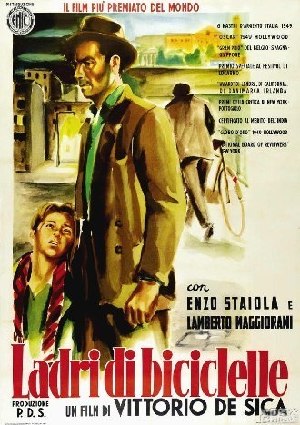|
Learning and inspection were the major tasks for the emerging Chinese film industry in the course of growth. From June to September 1954, China sent out a film inspection group, led by Wang Lanxi, director of the Film Administration Bureau under the Ministry of Culture, and comprised of leading officials from all film varieties and major operation department, to the Soviet Union. Beijing Film Studio president led film art officials and technicians to Moscow Film Studio for a one-year training program.
Meanwhile, the emerging Chinese film industry was learning from western European major filmmakers, such as France, Britain, Italy, Switzerland, and Yugoslavia.
In addition to sending filmmakers to inspections abroad, China invited foreign filmmakers to the country to expand exchanges with the outside world.
VI. Translate foreign works on films
To make substantial progress, the Chinese film industry had to learn from the foreign counterparts and open up their visions. For this purpose, the Film Administration Bureau under the Ministry of Culture, soon after its establishment, set up a translation team under the Art Committee (which was the pioneer of New China’s film book publication business, and the predecessor of China Film Press), and set about translating foreign books on films.
To accommodate to the situations, the translation team first explored the mode of film theory series to vigorously recommended film theories and performance skills of the Soviet Union. They were represented by the theoretical work Party on Films, edited by S.Lebedev, and his work Boris Shchukin as Lenin. These translated books and the Translated Works on Film Art, a periodical initiated in 1952, became good references for the Chinese film industry workers.
Meanwhile, China selectively translated some works on the situations and history of film development in other countries. They included Black Hollywood: The Negro in American Film, written by V. J. Jerome from the United States.
Chinese film playwrights benefited from the publishing of outstanding foreign film scripts. They were represented by A Village Schoolteacher, a classic work of socialist realism.
In 1956, the China Film Press was established. The translation team was incorporated as the foreign film editorial office under the publishing house. It worked even harder to translate internationally influential Soviet Union film theoretical works, such as Film Directing Fundamentals, written by Lev Kuleshov.

The Italian Neo-realistic Film The Bicycle Thief
In order to carry out the principle of letting a hundred flowers blossom and a hundred schools of thought contend in film theory evaluations, the office published classic works from famous writers in the world. As film history was concerned, it translated a wide range of works on the history of Italy, France and India, and the first volume of the Outline of Soviet Union Film History.
As it came to the film scripts, the office published a series of famous film scripts under the neo-realism school, in addition to the three volumes of Selected Soviet Union Film Scripts. They included Italy’s The Bicycle Thief. All these works broadened the visions of Chinese film industry workers and film fans, and furnished materials for critically absorbing foreign film skills.
Naturally, China translated many works on the Chinese film art to acquaint foreign film audiences with the situation in China.
Chapter Two Recovery of the Chinese film industry and vigorous exchanges with the outside world
After the Third Plenary Session of the 11th Central Committee of Communist Party of China in December 1978, the leftist thoughts were gradually overcome. The ideological line of seeking truth from facts was resettled, expounded and fully implemented.
In October 1995, the Sixth Plenary Session of the 14th Central Committee of Communist Party of China passed the Resolution of the Central Committee of Communist Party of China on Some Crucial Issues Strengthening Socialist Spiritual Civilization. The resolution pointed out the direction for the development of the Chinese film undertaking. In March 1996, the Central Committee of CPC put forward to carry out the 9550 Project, a product excellence strategy. In other words, in the five years from 1996 to 2000, China would annually produce 10 excellent feature movies, totaling 50 in the five years.
|
